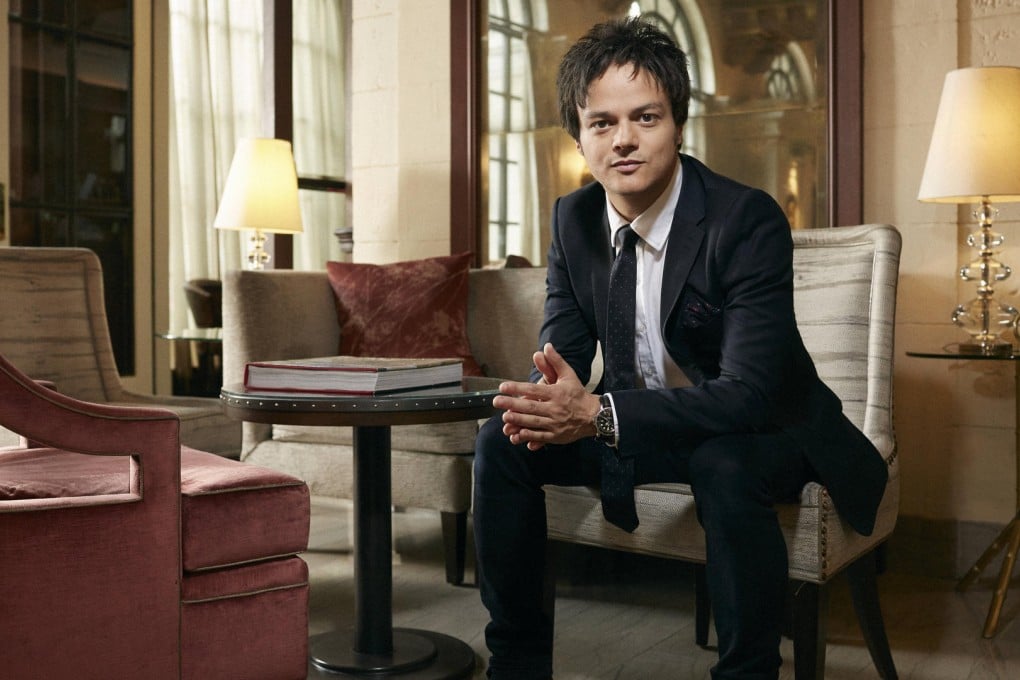Jamie Cullum on how hip hop turned him into a jazz player
The British singer-songwriter loves his music and talks of little else as he tells Rob McGovern about hip hop and why covering other people's songs is all part of the jazz DNA.

I always made music just for the pure pleasure of it. That might sound obvious but I don't think I ever made music thinking it would be my career. It felt like a passionate hobby that I took really seriously. I thought it was a thing other people did for a living so I always just pursued it, like I played computer games or read books, as just something I did. By the time I was 20, I still didn't think music would be my career. I was playing in all types of bands and I was in hip hop groups, but jazz was the thing I kept coming back to because it was like a total approach to music. It was an amazing springboard to go to all these other places.
SEE ALSO: British singer Jamie Cullum the latest to explore jazz standards
I was doing gigs to pay my student bills and afterwards people would say, "Do you have a CD?" I didn't, so me and my friend hired a village hall and some equipment for an afternoon and recorded a CD in two hours. I didn't send it to record companies as I didn't think of it as a demo tape. It was literally something to sell. That sounds like I didn't care but it's just that I didn't care about it being a job and, in some ways, it still doesn't feel like a job. I think that's probably quite healthy. When I left university I was somehow a musician already and I hadn't even thought about it.

I didn't grow up listening to jazz. I was a kid listening to Nirvana and heavy metal, then I discovered hip hop and electronic dance music. A Tribe Called Quest were definitely a huge influence because not only did they use jazz as samples but they reference a lot of jazz musicians in name and, in the cadences and the rhythmic way they rap, you can relate back to the way people like Charlie Parker would improvise. It's interesting when you play them alongside each other; you can hear those influences. When I did start listening to jazz it seemed like a code I wanted to crack, but I was just a kid who collected records so I didn't start immediately trying to play it. It's a bit like seeing a Rembrandt for the first time and thinking, "I'm going to be a painter". It took me a while to sit at the piano, but I knew I had a good ear for music because no one taught me to play - I could just hear things and work them out. I still don't read music, but that can be a misconception, particularly when people say, "Oh, you don't need to, it's more about feel". Ideally you have both. Someone like Lang Lang has both. I only have one side of it so I've been trying to make more out of the other stuff. If any young musician happens to read this, never think you can just get by on feel alone. You can, of course you can, but if you have both you're a volcano.

Reinterpreting other people's songs is part of the DNA of a jazz musician. It's helpful to think of jazz as a spontaneous art form where you invent stuff in the moment and often you use established themes to do that. So for my latest album, "Interlude", "covers" is almost an incorrect word, even though you are covering someone else's songs. You just use it as an opportunity to do something fresh, you use it as an inspiration board. We made the album in less than two days. Some songs we had planned but some we called while we were there. You can hear that in the record - it has a loose and spontaneous feel. I think the hardest part is leaving it be and letting it breathe. We recorded it all on a reel-to-reel tape machine so there was no editing, eliminating the modern malaise of over editing and overthinking everything.
I feel like I've gone nowhere. Not in a negative way, but I have such an interest in other people's music and I'm aware of what you can achieve at the piano. I've played with Lang Lang and I listen to Bill Evans, Thelonious Monk and Miles Davis, and I feel like I'm 2 per cent of the way there, so I feel like there is everything left to achieve and that is the point, really. It's the blessed unrest and it keeps me awake at night knowing how much there is left to do.